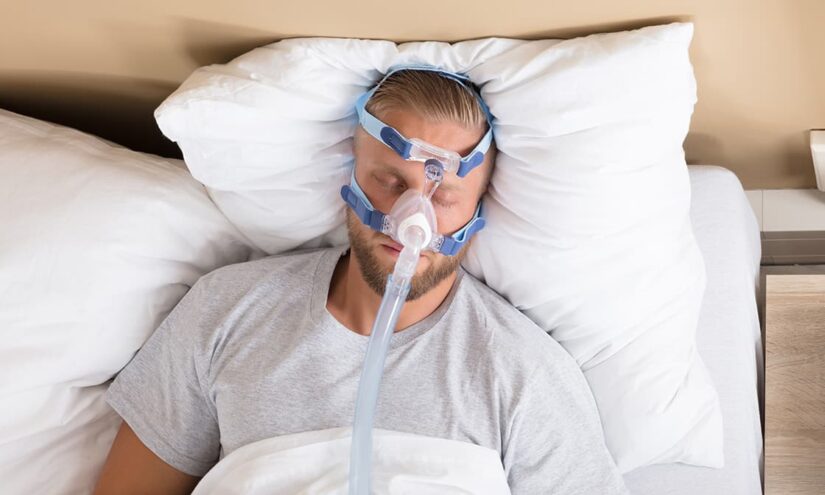




Harmed By a Defective Philips DreamStation CPAP? Call Us Today for a Free Consultation
At Bernheim Kelley Battista, LLC, we are investigating Philips DreamStation CPAP recalls and Philips DreamStation CPAP lawsuits. Serious questions have been raised about the safety of these medical devices. If you or your loved one suffered any type of injury or medical complications related to the Philips DreamStation CPAP, it is imperative that you know your rights and your options. Contact our defective medical device lawyers today to set up a free, no-obligation initial consultation.
The Philips Dreamstation CPAP machine was initially recalled by the company in June of 2021. The recall was issued due to concerns that a potential human carcinogenic polyester-based polyurethane (PE-PUR) foam was breaking down in the machines.
In June 2021, the global healthcare technology company Philips issued a significant recall of its continuous positive airway pressure (CPAP) and bi-level positive airway pressure (BiPAP) devices used for the treatment of sleep apnea. It is a recall that had a widespread impact on patients relying on these devices worldwide. Why was a product safety recall issued? Here is an overview:
To address the situation, Philips initiated a voluntary recall of affected devices, which included various models of CPAP and BiPAP machines manufactured between 2009 and April 2021. The company advised patients to discontinue use immediately and consult with their healthcare providers for guidance on alternative treatment options. To be clear, this is still an ongoing matter.

The Philips Dreamstation CPAP machine was initially recalled by the company in June of 2021. The recall was issued due to concerns that a potential human carcinogenic polyester-based polyurethane (PE-PUR) foam was breaking down in the machines.
By 2022, it became clear that the Philips CPAP and BiPAP recall was a very big deal. At the end of 2022, the FDA received more than 90,000 reports of problems from use. Tragically, as many as 260 deaths were linked to the recalled devices.
Philips CPAP Recall update. On June 2, 2023, the United States Food and Drug Administration (FDA) issued a comprehensive update regarding new safety data that the federal agency obtained on January 1, 2023, and March 31, 2023. There is strong evidence that a polyester-based polyurethane (PE-PUR) foam used in the Philips CPAP and BiPAP machines is dangerous.
To learn more, schedule a free consultation with us today.
Philips sleep apnea machines were recalled due to concerns surrounding the sound abatement foam used in these devices. Over time, it was discovered that the foam could deteriorate, leading to the release of potentially harmful particles and gasses. Inhaling these substances could pose health risks, including irritation of the skin, eyes, and respiratory tract. The recall was initiated to prevent further exposure to these potential hazards and ensure patient safety. Many different specific devices were recalled. Here is the list from the FDA:
The recall of Philips CPAP and BiPAP sleep apnea devices has led to a significant number of individuals filing lawsuits against the company. Indeed, the scope of this defective medical device case is significant. Nationwide, there are three million Philips CPAP sleep apnea machines that are covered by product safety recalls. The matter is now the subject of multidistrict litigation (MDL).
Many users of the recalled devices have experienced adverse health effects due to the degraded sound abatement foam, as highlighted by the recall itself. These health issues range from respiratory irritation to potential long-term organ damage. The severity of these health risks has prompted individuals to seek legal recourse.
The potential settlement amount in a Philips CPAP lawsuit depends on a wide range of different factors, including the extent of the victim’s injuries/medical complications. The case is still an ongoing legal matter. Many expect settlement amounts in the six figures for Philips DreamStation CPAP victims who suffered significant adverse health effects due to the product safety defect. It is crucial that you and your family are represented by an experienced defective medical device lawyer who can ensure that your rights are protected and that you are in the best position to secure the maximum financial support, including for economic and non-economic damages.
The use of faulty Philips CPAP and BiPAP sleep apnea devices has been associated with various health complications. Indeed, a wide variety of different types of adverse health problems have been named in lawsuits filed against the company. Here are some health issues reported by individuals using these devices:
Exposure to degraded CPAP foam in Philips sleep apnea devices can lead to various symptoms. If individuals have used these devices and suspect foam exposure, they should be vigilant for the following symptoms:
Determining who qualifies to file a Philips CPAP lawsuit depends on several factors related to the individual's use and experience with the affected devices. While we can provide general information, it is crucial to consult with a legal professional for personalized guidance. Generally, the following criteria may indicate eligibility for filing a Philips CPAP lawsuit:
It is important to consult with a legal professional who specializes in product liability and medical device lawsuits to assess the specific circumstances and determine eligibility for filing a Philips CPAP lawsuit. You may have a lot of questions, such as whether or not you have a viable claim and whether you can sue for pain and suffering. No matter your circumstances, a defective medical device lawyer can help you determine if you should file a Philips CPAP lawsuit.
Are you considering suing for personal injury on the grounds of a defective medical device? You may have a claim for compensation for harm caused by a Philips Dreamstation CPAP. The best step that you can take now is to set up a free, fully confidential initial consultation with an experienced attorney. Your lawyer can review your case, answer your questions, and explain the legal process. Come prepared. It is likely that an attorney will have questions for you as well, such as:
Urgency is paramount as the deadline to join a CPAP recall lawsuit. If you wait too long to take legal action, you may not be eligible to bring a claim at all. CPAP recall lawsuits are product liability claims. The statute of limitations for product liability lawsuits varies from state to state. You need to confirm the specific statute of limitations in your state of residence. In the majority of U.S. jurisdictions, the product liability statute of limitations is two years or three years. However, there are a few states (Kentucky, Louisiana) where the statute of limitations is only one year. There are also a few states where the statute of limitations is four, five, or even six years. The best thing to do to protect your rights and interests is to consult with an experienced CPAP Recall Lawsuit attorney as soon as possible. Do not miss your window of opportunity.
Defective medical device claims are complex. You cannot count on the large medical device manufacturers or their insurance companies to look out for your best interests. You need an experienced and effective advocate on your side. At BK Law, we advocate for real justice and real results. With the skills and experience to take on defective Philips Dreamstation CPAP cases, our product liability attorneys will be by your side every step of the way. At Bernheim Kelley Battista, LLC, our defective medical device lawyers are skilled, experienced, and dedicated advocates for real justice and real results. If you or your family member suffered harm due to the Philips Dreamstation CPAP, we are more than ready to help. Contact us today to arrange your free, fully confidential initial consultation. We are well-positioned to handle your case.
Hair Relaxer Lawsuit
Bard PowerPort Lawsuit
Tepezza Lawsuits - Hearing Loss and Tinnitus
Ezricare Eye Drop Lawsuit
Bair Hugger Lawsuit
Camp Lejeune Lawsuit
Roundup Lawsuit
Firefighter PFAS Exposure Lawsuit
Tobacco Product Liability Lawsuit
3M Defective Combat Earplugs Lawsuit
Defective Hip Replacement Lawsuit
Hernia Mesh Lawsuit
Manufacturing Defect Lawsuit
Design Defect Lawsuit
Elevator & Escalator Accidents Lawsuit











